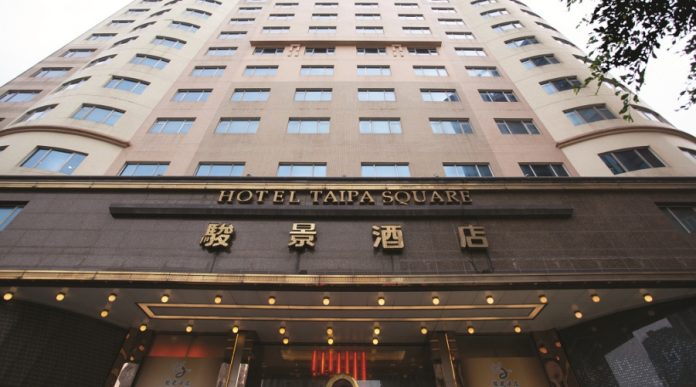There are 22 casinos that are not wholly owned by any of the six dealers or sub-franchisees; 21 of them are on the Peninsula.
Special Report | Peninsula, The Poor Relation

On 2nd April, 2008, Ho Hau-wah, then Chief Executive of the Macau SAR, put a halt to new casino concessions in the foreseeable future. The Macau Government also announced that it would not approve any land for the building of new casinos (an exception was made for existing casino projects) – for existing operators, the Macau Government imposed a cap on gaming table growth.
For many observers, this ‘2008 Moratorium’ as this policy decision (never translated into law) was known, also told the market that there would be no further approvals of third-party casino arrangements – projects piggybacking on the licence of one of the concessionaires or sub-concessionaires.

The issue was never properly clarified but, coincidentally or not, during the next nine years there was no mention of the subject – until in 2017, when we see several moves involving the so-called satellite casinos.
At that time, several lawyers and scholars were perplexed by the passivity of the government that did nothing to stop various businesses opening (Roosevelt, Legend Palace and Royal Dragon).
The official explanation is simpler than it seemed
“There was no wordings related to ‘satellite casinos’ mentioned in the policy announced by the Chief Executive on 22nd April, 2008,” the Gaming Inspection and Co-ordination Bureau (DICJ) told Macau Business. In other words, those interpreting that the intervention of 2008 had anything to do with third-party casinos had been deceived.
“The Macau SAR Government strictly adheres to the principle of fostering healthy and orderly development of the gaming industry,” DICJ responded by email.
That is, it is confirmed that these operations – a real idiosyncrasy of Macau and the Peninsula, in particular – take place in a legal vacuum difficult to understand.

“The phenomenon of satellite casinos is, as I see it, an extension of the phenomenon of ‘multiplication or unfolding of concessions for the exploitation of games of chance’,” explains Hugo Luz dos Santos, a magistrate with the Portuguese Public Prosecutor’s Office, residing in Macau and working in the Faculty of Law of the University of Macau both as a PhD Researcher and Teaching Assistant.
“If you look closely, the sub-concessionaires who technically have an unclear legal existence (even opaque in some cases) also grant ‘atypical concessions’ of gaming not from the gaming concession (that they do not have) but from the sub-concessions [Mr. Santos is talking about Melco], which is based (itself) upon an unclear legal framework,” adds the jurist. “It will not be difficult to predict that satellite casinos will be granted a sort of ‘shared sub-concession’ of the satellite concession from (and always with the protection of) the original concession of one of the concessionaires or sub-concessionaires!” anticipates the same expert.
He also poses other questions that may arise sooner or later associated with the casino satellites business: if the concessionaires (and even sub-concessionaires) are subject to preventive and successive control of functional, operational and financial activities, how can the satellite casinos be controlled?
Mr. Santos replies to his own doubts, as these third-party operations “are subject to purely incidental control (since the market share they occupy is smaller).”
But what if things go wrong? Who foots the bill?
“The ‘father’ or the ‘children’ or both? If so, on what terms? Is the American share of market liability (so vague in competition law and, above all, producer liability) adopted? More than anything, this phenomenon deepens the legal uncertainty surrounding the aforementioned development and, above all, the putative damage to the reputation of the Macau gaming industry. It also raises doubts about the contours and interests associated with the phenomenon.”
Which is why this renowned jurist, with diverse works published on gaming in Macau, does not hesitate to make a recommendation to the government: “Either that the future revision of the laws of gambling legally configures the phenomenon or extinguishes the same.”
According to the expert, “this area of legal uncertainty will lead to more unfolding and more damage to the reputation of the Macau gaming industry.”

“Either that the future revision of the laws of gambling legally configures the [satellite casino] phenomenon or extinguishes the same” – Hugo Luz dos Santos
More difficult life
“In our view, it will become increasingly more difficult for most of the third-party casinos to compete in the years ahead given their lack of amenities (and budgets) relative to the existing and next wave of Big 6 projects,” analyst Grant Govertsen wrote in a Union Gaming Securities Asia Ltd. report.
“Nearly all of these properties,” he added, “are, to put it mildly, much smaller and much less physically attractive than the properties already developed and being developed by concessionaires.”
Nevertheless, “that doesn’t mean that there are no opportunities to be had,” the Union Gaming report stated. “It is important to remember that even if cash flows dwindle to almost nothing there is still a lot of value associated with these third-party casinos, namely the underlying land value of very scarce gaming-entitled and hotel-entitled land.”
























